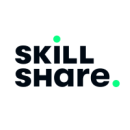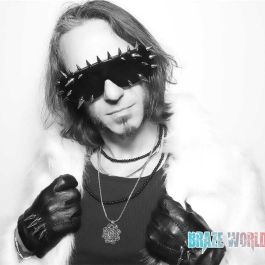Being an expert is conditional.
Expertise is not as simple as being born with a certain skill, reading the right books or having the best connections. Rather, it is circumstantial based on potential learning opportunities, trying and failing, having a solid support system and being part of a collaborative culture. Having the chance to “exist as your best self” turns sought-after prowess into a lived experience.
But that kind of enriching company culture doesn’t simply occur unprovoked. An understanding leadership that embraces innovation and appreciates diverse backgrounds fosters a supportive environment. Employee recognition and opportunities for feedback are just as essential as a strong tech stack or cutting-edge ideas – especially in a complex field like engineering.
That’s why Built In NYC sat down with two of the city’s engineering leaders to uncover the most important values they strive to instill within their teams for the greatest success.
By promoting a culture of learning, Skillshare Vice President of Engineering Mike Sherov said engineers are able to find a greater sense of purpose in their careers and better adapt for the future.
What are the key characteristics/values of a good engineering team culture?
A good engineering culture provides three things: autonomy, purpose and mastery. For me, mastery is one of the most important things to cultivate, as it leads to increased autonomy and a sense of purpose in the craft of software in your career beyond your current role. Learning culture is really important at Skillshare, and we bring that to life in a lot of ways.
We do weekly lunch and learns, where anyone can bring a topic they’re passionate about – either technical or not – and present for an hour. We have structured pair programming time built into our 30-60-90 day plans for all employees regardless of level, which is time to explore the codebase with the objective of learning. We also have an education stipend, conference stipend, and access to training and learning materials for all team members. Lastly, we have a concept called “vanguards,” or groups of people organized about a particular technical domain. They meet regularly to discuss strategy, but also to expose each other to new concepts, ideas and technology related to that domain.
How do you ensure engineers on your team continue to feel challenged, engaged and excited by the work they’re doing?
Ensuring the team stays motivated, challenged and engaged took on new meaning in 2020. With the pandemic and subsequent quarantines, it was important for us at Skillshare to step back and say, “Is now the time to be excited? Challenged?”
For some employees, yes. Some people responded to the pandemic by looking toward work to keep them distracted or motivated. For others, it was just being validated in what they were feeling as we isolated and adjusted to a remote-first but physically isolated world. With that said, there were many ways to engage with employees depending on the above. But for those who believed “feeling excited” was important, we challenged and engaged the team with a strong appreciation culture.
We have a “shoutouts” channel where we celebrate wins. We leverage monthly all-hands meetings to keep the team up to date on our bigger visions and goals. We also spend a lot of time at the engineering management level “catching people in the act of doing great work.” Lastly, we bias towards measurable outcomes and use “cycle time” and other industry-standard metrics to quantify our success.
A good engineering culture provides three things: autonomy, purpose and mastery.”
How are you continuing to evolve your team culture and respond to shifts in cultural and work trends, employee sentiment, technology, etc.?
As two old sayings go: the only constant is change, and in order to improve things, you must measure them first. At Skillshare, we take a data-centered and human-focused approach to change management. Some teams find themselves reacting and adjusting to shifts in culture only when it reaches a point that it can no longer be ignored, and this usually happens when they don’t put in place employee feedback mechanisms or other practices to extend their gaze beyond their current situation.
At Skillshare, we take regular anonymous employee pulse checks to understand what the team is currently feeling about topics like remote-first and remote-hybrid. The world is changing and being an early mover on these trends will create competitive advantages for employees and employers alike. We also spend time in conversation with other companies via networking events to expose ourselves to what is and isn’t working at other organizations. Technology is adapting and evolving quickly, and we regularly reevaluate our technical decisions as the landscape evolves via routine-dedicated technical strategy review sessions.
According to Braze Product Engineering Directors Chris Rogus and Francisco Trindade, giving engineers the freedom to take initiative on projects and express their opinions freely not only leads to greater innovation. It also builds a more inclusive culture.
What are the key characteristics/values of a good engineering team culture?
To move Braze forward as we grow quickly and take on additional challenges, our engineers are actively encouraged and expected to take initiative and suggest their own ideas.
To that end, Braze’s teams are structured for the engineers, product managers and designers to regularly collaborate with each other to create new opportunities and not just follow top-down directions. More broadly, the sales and product organizations are separate so that technical innovation drives our strategy – not only customer requests. We incentivize engineers to create by giving them opportunities to own technical challenges, such as hack days and discussion meetings to share their ideas with wide audiences.
As part of that, we also value a respectful and inclusive culture. We try to develop forums for everyone to have their voice heard independently from their experience level. Braze actively encourages and supports bringing everyone’s perspective to the table to flesh out our plans and build products in order to match the quality of our teams.
We try to develop forums for everyone to have their voice heard independently from their experience level.”
How do you ensure engineers on your team continue to feel challenged, engaged and excited by the work they’re doing?
Braze’s fast growth and competitive market provide plenty of challenges for our team to solve, both in product and engineering. Our strategy as an organization is to make our goals and obstacles as clear as possible to our team by providing engineers opportunities to solve them.
We have a bottom-up approach to OKRs that allows teams to define their objectives with engineers actively participating in the conversation – including suggesting projects and direction that is exciting for them. We also have different forums for technical discussions, both team and organization-wide, where engineers can advance their visions. Through such opportunities, we incentivize engineers to own technical problems and their solutions. Our career ladder evaluates engineers based on their impact on the company, creating an environment where engineers create their own growth path when appropriate and find novel, personally appealing approaches that they can take the lead on.
How are you continuing to evolve your team culture and respond to shifts in cultural and work trends, employee sentiment, technology, etc.?
We listen as much as we can. From regular employee surveys to weekly one-on-ones, managers are constantly listening to the needs of our employees. We also listen to candidates that come through our recruitment pipeline, getting feedback from both people that have joined and those who haven’t on what we could improve. Lastly, we look at the broader market and what is happening around other companies to stay ahead of the curve. The last 12 months have been an incredibly challenging period in that aspect, and we have tried to adapt as quickly as possible with our employees in mind.










